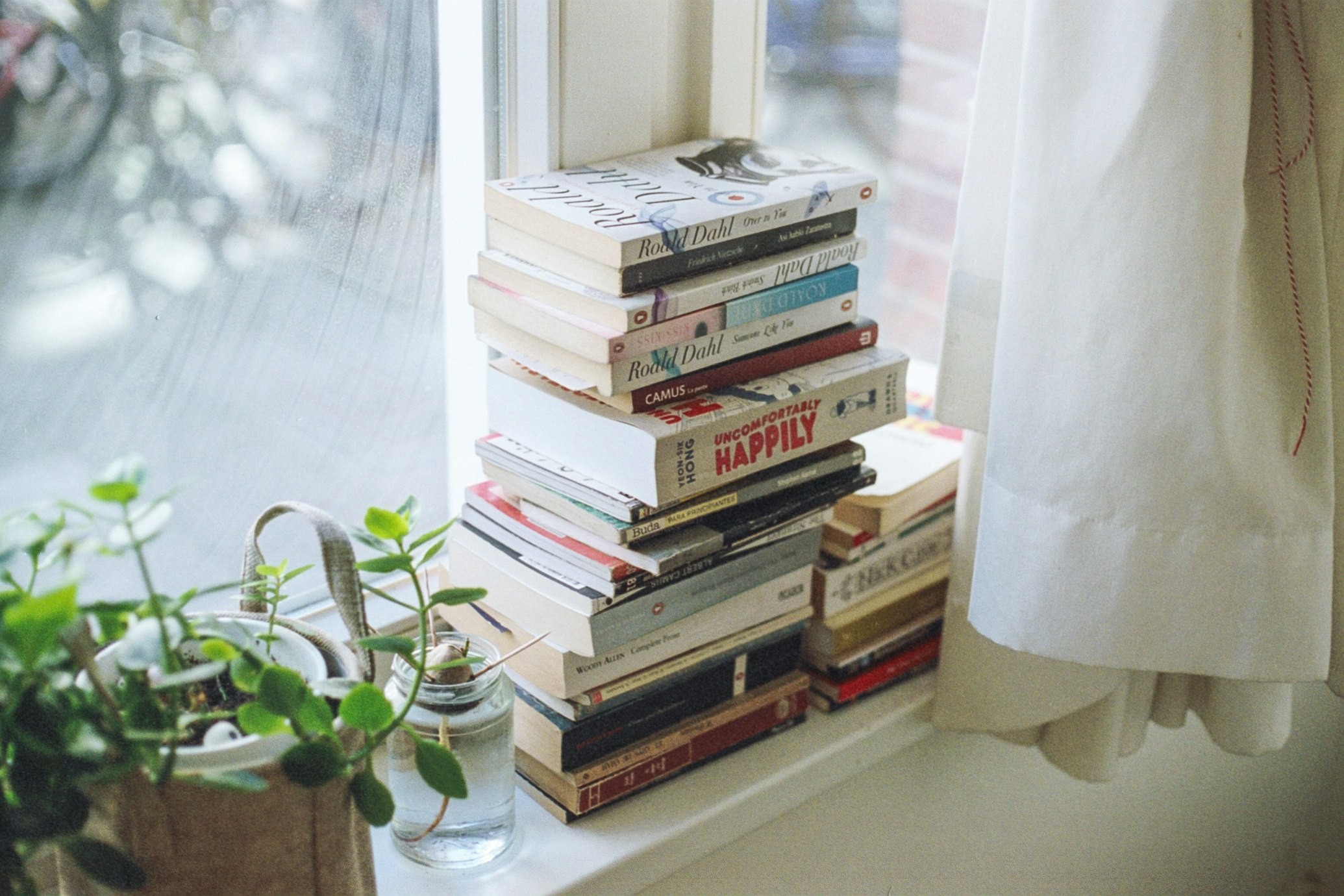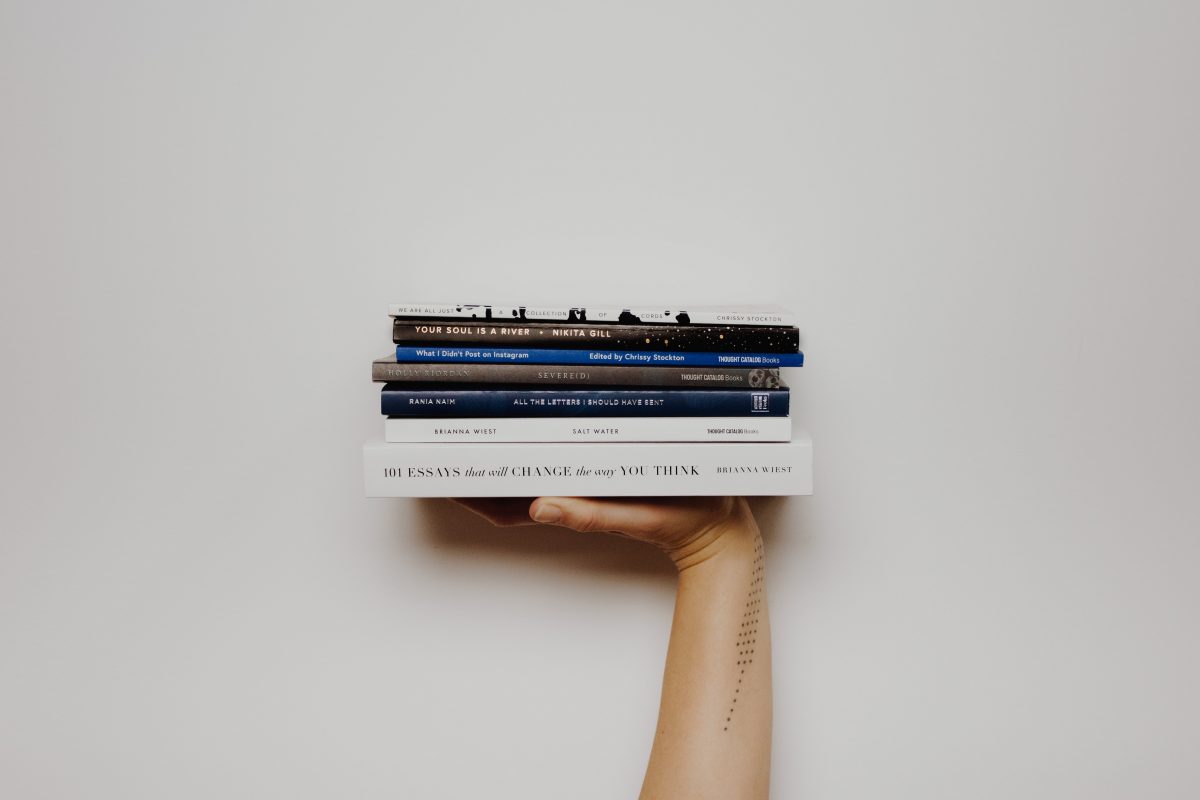|
Enjoy
Getting your Trinity Audio player ready...
|
It is fair to say I hated reading. All I really cared about was to capture all the ideas and drawings in a brief moment. Even comic books didn’t offer relief- there were too many practical things, responsibilities and games that appeared more approachable than reading itself. The task of reading reminded me of my time at school, the many forced textbooks deciding for us why an author or text ought to be read. Without growing up as a ‘natural’ reader or book hobbyist, reading like for many can be seen retreating to brisk moments over web articles and social media drama. It is not uncommon to hear the busied, grown adult exclaim they have almost no books. Giggles arise when the question becomes “when was the time you last read a book?” I was in the same camp until I hit a wall in my search for good habits- learning has and always will derive from the source of reading. We can all quench our thirst for knowledge and skill by redeveloping our relationship with books. A book reader is not just about esoteric texts or prolonged study sessions. This blog post offers some tips on how we can fine-tune our way to more book reading.
A brief recap on my experience of trying to become a reader:
I had many attempts on becoming the glorified ‘avid reader’ but discovered this was precisely where I was going wrong. Instead of reading for my own sake, out of interest and respect for learning, I strove within a delusion of grandeur. I only read complicated books, ones that seemingly could prove to myself and others I was ‘learning’. I wished to speed through books, picking up information like a sponge and ultimately end with a prideful pile of books. The reality was shamefully different. Every dense book I picked up, I quickly became overwhelmed. Rarely did I manage to finish a book, let alone return to reading a book out of enthusiasm and curiosity. I searched and pondered for many years, if I could ever better myself and spend my precious hours reading with love and appreciation. If books are humanity’s means to transfer wisdom and knowledge, we all ought to spare time to read.
The YouTube algorithm miraculously served me some wisdom, a video on why reading more books is more possible than people think. I learned reading is no far-stretched goal, a dash through piles of books or a lost race to outstretched competitors. The habit of reading, and thus learning more, belongs to the comfortable, curious self. I needed to garner interest in the act of reading by choosing a book belonging to my interests. Alongside making reading more personal, I discovered the value of time. Never did I think I could read 400+ pages, “who has time to finish books?”. Fortunately, time hadn’t given up on me nor on the reader who views this- reading books can be done almost anywhere at any time. To finish a book is absolutely possible when we realise the process is gradual. A few pages or chapters a day go a long way across a month, and then a year to the number of books you can read. Do enough times and without notice, reading books is now a habit!
I now hope to outline some tips to escape the adult rut of not reading books and accomplish the goal of reading more. Let’s get rid of the image reading belongs to a group of pretentious elites or esoteric writers. Reading is a means to learn, contemplate and create at all levels, fictional and non-fictional. The words in books are there to be interpreted by the reader, enabling us to build various perspectives and emotions to feed into our lives. I rebuilt my connection to reading books and found a strengthened bond to writing. Thus, it remains obvious to even the article reader here, we all need books in our lives to learn and grow.

8 tips to how I went from reading less than five books a year to reading more than twenty:
1)Find books that spark an interest: you will never finish a book if the topic you choose is not something you are willing to explore to the end. Find a book that fits your trend or mode of thinking and use this as an incentive to keep reading. Look through websites, libraries and bookshops on those topics. If you still haven’t decided what topic, visit those places to see what triggers your curiosity! Still nothing? Give yourself some time and note what you may like to watch or learn about during your spare time which may lead to grander questions. There have been many books I have come across through the odd podcast discussion.
2)Stick to one book, two at most: I had the overly ambitious habit of taking out multiple books like a supermarket checkout. A point mentioned by Bill Gates has since stuck with me, never start on a book you will not finish. This is not to say you cannot skim read chapters or sections for research. But remember separate research reading from personal reading so you can still capture the whole book. The priority remains to get started and run with your selected reading.
3)Read before bed: The point is stressed enough during childhood but it is worth repeating before sleep avoid devices and pick up a book. The last few hours of the day are usually the quietest and there proves no calmer time, laying in bed and simply reading a book. Not only does this help you sleep better but it is also proven sleeping helps our memory formation. Hence, it only makes sense to pair the two together for calm and effective learning. I will admit the habit is not the easiest to maintain. In these raw hours, we’re likely tired or our scattered brains scramble to wanting more from the internet. If you’re serious about continuing the reading trend before bed, look towards setting an internet blocker to halt any compulsion for electronic devices. You will soon develop a positive habit of reading a book before sleeping, knowing that time is better spent this way than browsing or watching on the internet.
4)Don’t immediately reach for your phone in the morning! Ok, you can glance to see if there are any urgent messages but fight your way to claiming at least 15 minutes of reading each morning. Our day understandably gets busier once we get up so why not cram some alone time reading a book? Just know, this method offers the quickest means to finishing any book. It’s also a healthier, more productive way of starting your day. Words and ideas will immediately flow to the mind and give the satisfaction to tackling the rest of the day’s schedule.
5)Schedule a time out of your day to read and set a timer: similar to the two previous efforts of building a positive habit of reading every day, you can take this further by ensuring that you stick to a worthy amount of effort during reading. Importantly whilst remembering reading takes patience, setting a timer can force you to sit down and take your time to move through the pages. Before you notice, the timer will be over, and you may even feel the urge to keep reading. With enough time, will no longer feel the demands of reading a book. Remember, you are reading for enjoyment, based on your interest in the book you chose, as much as for the demands for learning and creativity.
6)Pick challenging reads, then balance it out with easier novels– the transition from reading books requiring close comprehension to a book that naturally flows in the story it tells will help you read with greater relaxation and enjoyment than having not read at all. The ‘difficult’ read can still be of great interest of course but I often find it difficult to indulge in it when there is a greater urge, i.e. before bed, to slow things down and lay in peace. Carefully balancing the two will not only help you get through two books at once but also enable you to read widely, between fictional and non-fictional books.
7)Find a quiet or dedicated place to read, or read in a different place: this may depend on what you are used to but people will generally find a quiet place, free from background noise and distraction, is the best place to focus on reading. You must hear your voice, in your mind or under your breath, to really take in the content before your eyes. If you are someone who struggles with dead silence, the best means to escape the ominous feel is to play some classical music or nature sounds. Many will know loud music and sounds make comprehension difficult. Instead, keep to subtle sounds to settle into the reading mood. The best place for some quiet time and study is of course the library- a place with the sole intention of reading, where you can stay conscious of your time spent on reading books.
8)Buy an e-reader! I too was long-sceptical of e-readers. How could digital text make up for the same real experience of a book? Trust me, not a phone but an e-reader is a dedicated device where like a book only reading takes place. An e-reader like a Kindle makes reading easier by the fact you longer have to store, hold or carry chunky books. You can have hundreds of books tucked away in this device. Books can be as cheap as 99p and with every book comes the possibility of storing endless notes and highlights for quick referencing. I find the Kindle reader brings users to the closest real experience of reading, with a fluid text that show close to the surface, in sizes and texts to choose easiest to your eyes.

